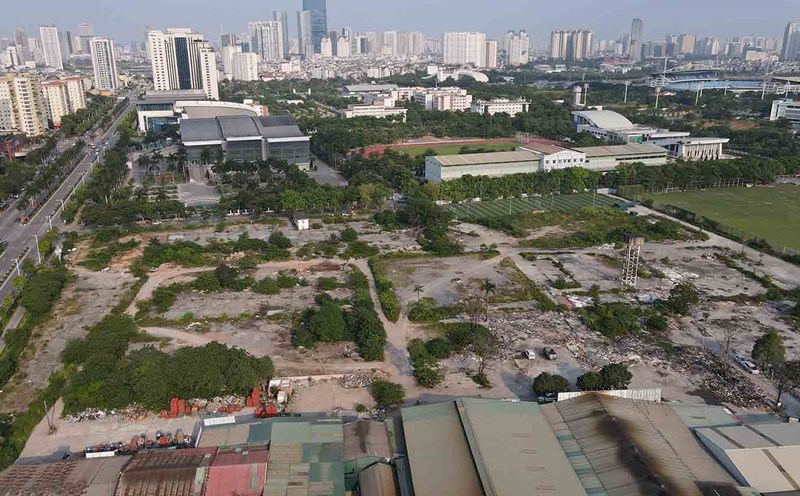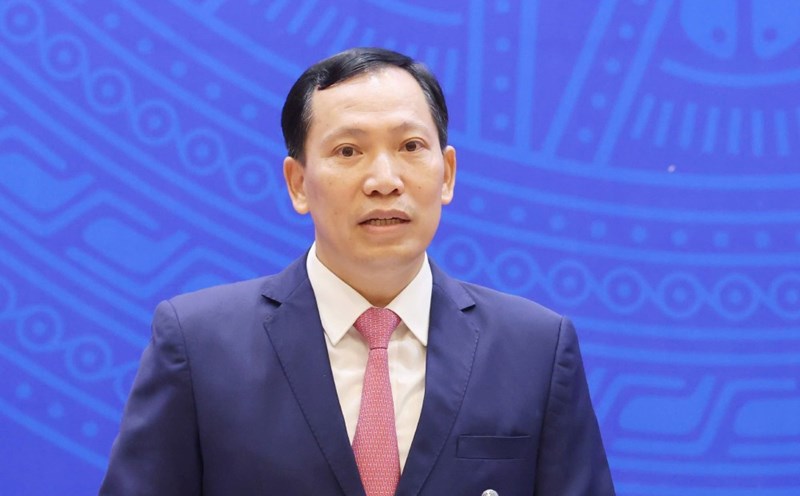On August 29, Deputy Prime Minister Tran Hong Ha chaired a meeting to listen to reports and give opinions on the draft Land Law (amended), so that the Ministry of Agriculture and Environment could continue to improve and submit to the National Assembly for consideration at the 10th session.
According to the submission, the Law amending and supplementing a number of articles of the Land Law is expected to take effect from January 1, 2026.
To ensure continuity, the draft proposes 13 transitional regulations to handle issues of planning, land use plans, land recovery, compensation, support, resettlement, land allocation, land lease, permission to change land use purposes, land prices, fulfill land financial obligations, issue land use right certificates, etc.
Regarding financial mechanisms and land prices, the Ministry of Agriculture and Environment proposes to use land price lists and land price adjustment coefficients as a basis for calculating financial obligations and compensation when the State reclaims land; adding technical infrastructure cost factors to the price determination method.
Mr. Nguyen Ngoc Phuc - Vice Chairman of Lam Dong Provincial People's Committee expressed that the application of a stable 5-year land price list and an adjustment coefficient must be based on practical data, reflecting changes in land prices in each area to reduce pressure in calculation and ensure effective project operation.
The coefficient of land price fluctuations needs to be determined based on market data, avoiding mechanical application, while considering the option of paying land at one time for the entire project life cycle to facilitate businesses and management agencies.
Meanwhile, Chairman of the Ho Chi Minh City Real Estate Association Le Hoang Chau proposed applying the land price list and annual adjustment coefficient to distinguish land within and outside the limit to reduce costs for households and individuals; allowing investors to adjust the land use term when buying back projects with short use time.
Concluding the meeting, the Deputy Prime Minister stated that the shortcomings are from the locality, from ministries, from people and businesses, but the locality is the most aware. Therefore, a detailed report is needed to be sent to the Ministry and the Government.
Regarding planning, the Deputy Prime Minister emphasized that currently, land use planning is implemented at two levels: Provincial and Central.
The Deputy Prime Minister agreed with the orientation of land management based on existing urban and rural planning instead of planning and land use plans. Where there is no planning, it is mandatory to establish a land use planning for management.
Regarding land finance, including valuation methods, land price lists and coefficients adjusted according to market fluctuations, the Government leader emphasized that the land price list will be used for all policies, harmonizing the interests of people, businesses and the State.
However, the adjustment coefficient needs to have detailed regulations, based on practical data and market principles, to avoid confusion or violations of the law, even "leading many risks to management agencies".
Regarding the time to apply land prices in BT projects or land allocation, the Deputy Prime Minister said that it is necessary to be clear and in accordance with the Law on Investment under the Public-private Partnership (PPP) method; at the same time, consider removing the regulation on additional fees for late payment of land use fees if it is a fault of the State. The time of application of the law must follow the principle of "deciding when to apply".











